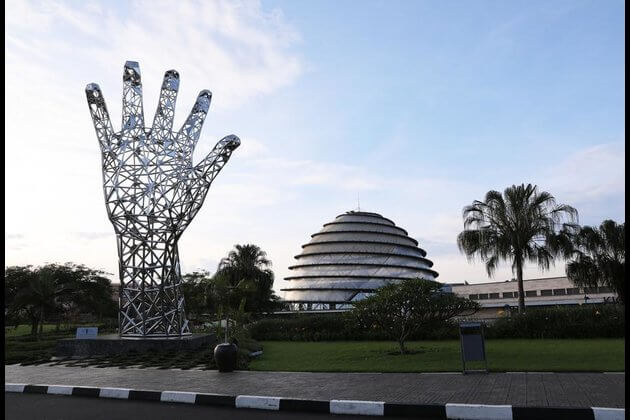
Our Projects are
Transforming African Trade
Quick Contacts
2nd Floor, Fidelity Insurance Centre Waiyaki Way, Westlands

Delegates at the Trade Development Forum 2024 have called for strengthened efforts to promote digital innovation as a means of unlocking Africa’s trade and business potential.
KIGALI, Dec. 3 (Xinhua) — Delegates at the Trade Development Forum 2024 have called for strengthened efforts to promote digital innovation as a means of unlocking Africa’s trade and business potential.
The forum, which opened Monday in the Rwandan capital of Kigali, was organized by TradeMark Africa (TMA), an aid-for-trade organization with the aim of growing prosperity in Africa through trade, in cooperation with the Rwandan government. It focuses on the transformative power of digital innovation under the theme “Unlocking Africa’s Trade Potential Through Digital Innovation.”
Speaking at the event, Prudence Sebahizi, Rwandan minister of trade and industry, underscored the crucial role of technology in overcoming trade barriers, fostering connections and enabling inclusive economic growth.
“This year’s theme reflects the aspirations of our continent to build a digitally connected and economically inclusive Africa. Today, we stand on the threshold of unprecedented opportunities under the African Continental Free Trade Area (AfCFTA), and technology is the engine driving this transformation,” Sebahizi said.
He highlighted Rwanda’s achievements in trade facilitation through initiatives like the Electronic Single Window system, which has significantly reduced trade processing times and costs.
“Technology enables us to enhance efficiency, cut trade costs and ensure that Africa’s vast market is more accessible to all businesses, particularly SMEs (small and medium-sized enterprises). Rwanda is proud to be at the forefront of these efforts, and we see AfCFTA as a catalyst for deeper integration and a more unified economic space across the continent,” he added.
Wamkele Mene, secretary general of the AfCFTA Secretariat, emphasized the significance of the AfCFTA Protocol on Digital Trade, describing it as a legally binding framework for creating a single digital market across Africa.
“Africa’s challenges are Africa’s opportunities. I believe that the digital innovation and the tools we deploy today will accelerate integration and enable 600 million young Africans to participate in the digital economy,” Mene said, describing the protocol as vital for driving Africa’s digital transformation, industrialization and sustainable development.
Hailemariam Desalegn, former prime minister of Ethiopia and board chair of TMA, called for investments in infrastructure, skills development and policy frameworks to sustain the momentum.
“For generations, Africa was seen as a place rich in resources but dependent on others for technology and finished goods. We must change this narrative. Digital innovations are reshaping how we do business, connect and present ourselves on the global stage,” Desalegn said.
David Beer, chief executive officer of TMA, stressed the success of digital solutions in streamlining trade processes across the region.
“Over the past decade, we have witnessed the tremendous impact of digital solutions in trade processes across the East African region and beyond. Digital trade corridors now operate more efficiently, transforming what once seemed far-fetched into a new norm,” Beer said.

© Provided by Xinhua
Edouard Ngirente, prime minister of Rwanda, noted that the forum coincides with the progressive implementation of the AfCFTA and its digital trade protocol, describing it as a significant milestone.
“The implementation of AfCFTA and its digital trade protocol marks a new era in regional integration. It offers great potential to increase connectivity, reduce barriers and drive economic growth. Investing in Africa’s digital and technological capabilities is not an option, but a must,” Ngirente said.
He cited reports indicating that improved digital connectivity could reduce trade costs by up to 25 percent.
“To achieve this vision, we need significant investments in energy and digital infrastructure, electronic cross-border payments and improved customs and logistics systems. This transformative journey demands strong public-private partnerships,” Ngirente added.
The forum, which runs through Tuesday, has drawn over 300 participants, including government officials, development partners, academics, multilateral organizations, and private sector representatives from TMA’s countries of implementation and beyond.
Disclaimer: The views and opinions expressed in this article are those of the authors and do not necessarily reflect the official policy or position of TradeMark Africa.